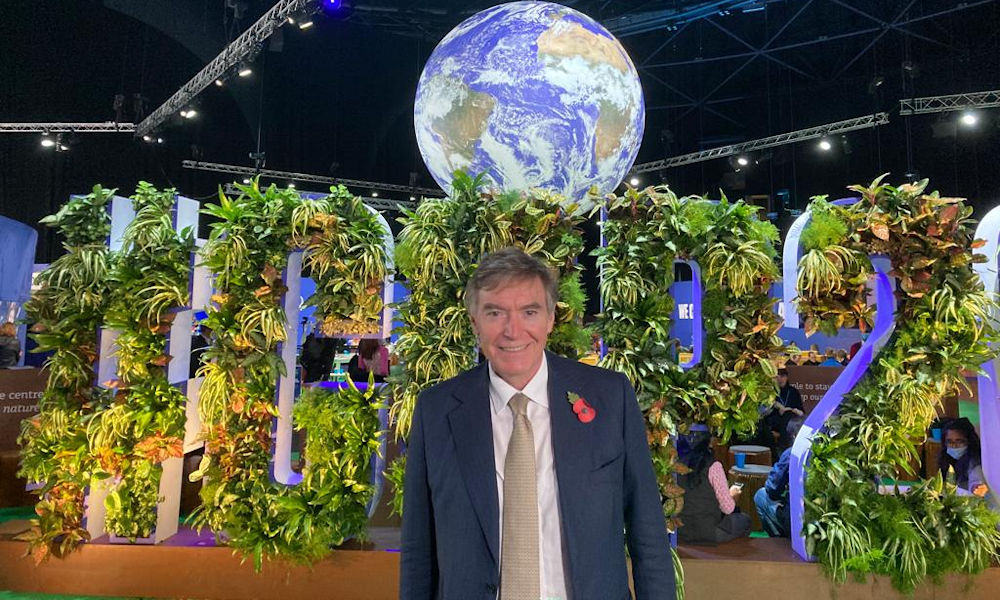Philip Dunne, MP for Ludlow, attended COP26 for part of last week in his role as Chairman of the EAC. He commented today on his impressions of the first week of the conference:
“It has been an interesting few days in and around the Blue and Green Zones at the COP26 Conference in Glasgow. The challenge to decarbonise the world’s economies is clearly massive, but the determination to do so was writ large from political leaders right across the spectrum of delegations and observers representing every country on the planet.
“This was the first COP climate conference I had attended, which makes comparison hard for me to make. But my impression was of a groundswell of positive statements and commitments in week one, which will now need to be documented in week two, to enable governments to be held to account and deliver action on the ground. I am told week two is always more challenging.
“I was very pleased to have been able to co-Chair an event for parliamentarians to discuss how we will hold our governments to account for the pledges they make. This was a well-attended session, with impressive contributions from counterparts in Indonesia, Pakistan and Uganda, as well as other cross party Committee Chairs from the Commons and Lords.
“I was also honoured to close the events at the UK President’s Pavilion on Saturday and thank the distinguished economics professors, Lord Nick Stern and Sir Partha Dasgupta, who had a fascinating discussion around the economics of climate change and nature.”
COP26 has already delivered crucial international climate action. Some of the initiatives include:
- Agreement from a 190-strong coalition of countries to accelerate the phase out of coal power, end support for new coal plants, rapidly scale up deployment of clean power generation, and make this transition in a way that benefits workers and communities.
- A major international agreement to halt and reverse deforestation by 2030, signed by more than 100 world leaders–including the most densely forested countries such as Brazil, Russia and Canada–and backed by £14 billion of public and private investment.
- A new Global Methane Pledge, with targets to reduce methane emissions by 30 per cent by the end of the decade, signed by 105 countries covering half of the top 30 big methane emitters around the world. The pledge covers countries which emit nearly half of all methane and make up 70per cent of global GDP. This equates to a potential of 0.2 degrees warming by 2050 avoided, playing a critical role in keeping 1.5 degrees within reach.
- Agreement from the UK and 24 countries and public finance institutions to end international public support for the unabated fossil fuel energy sector by 2022 and prioritise support for the clean energy transition.
As the second week of negotiations at COP26 begins, focus turns to the impact of extreme weather, environmental degradation and rising sea levels and what is being done - and can be done - to adapt, including in transport.

Philip Dunne MP at COP26
